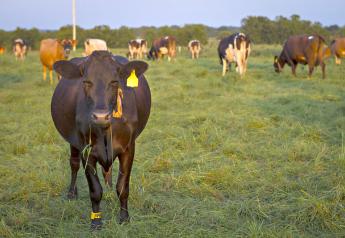FDA Issues Draft Guidance on GRAS Feed Ingredients
The American Feed Industry Association believes FDA's proposed regulatory changes would help streamline the process for approval of feed ingredients.
The FDA this week published a draft guidance regarding the process for listing food or feed ingredients as “generally recognized as safe” (GRAS). Specifically, the proposed guidance addresses best practices for convening a panel of experts to determine whether a substance meets the criteria for GRAS categorization.
FDA also released guidance on the regulatory framework for GRAS for animal food ingredients.
Under the GRAS provision, a substance that is GRAS does not require pre-market review and approval by FDA as a food additive. The GRAS provision requires that, for a substance to be GRAS, its safe use in food be widely recognized by qualified experts.
The draft guidance specifies the following best practices for parties interested in convening a GRAS panel:
- Identify GRAS panel members who have appropriate and balanced expertise.
- Take steps to reduce the risk that bias or the appearance of bias will affect the credibility of the GRAS panel’s report, including the assessment of potential GRAS panel members for conflict of interest and the appearance of conflict of interest.
- Limit the data and information provided to a GRAS panel to publicly available information.
The American Feed Industry Association, members of which represent about 75% of animal food and 70% of non-grain ingredients manufactured and distributed in the country, expressed support for the FDA documents.
“Over the past 10 years or so, the process for gaining FDA recognition or approval of new animal food ingredients has become much more complicated and costly, in spite of the minimal changes to the rules governing this process,” says Richard Sellers, AFIA’s senior vice president of public policy and education. “FDA staff has told us that there is a lack of resources needed to complete the increasing number of applications the agency is receiving, but we believe it is more complicated than that.”
AFIA notes there are roughly 900 ingredients approved for use in animal feed and pet food in the United States. These ingredients are approved for use in one of three ways:
- Utilizing the GRAS provisions required by the Federal Food, Drug and Cosmetic Act (FFDCA).
- Recognized within the American Association of Federal Control Officials’ Official Publication.
- By the FDA through the food additive safety review process.
Sellers says AFIA welcomes the agency’s guidance documents and plans to provide detailed comments to ensure the process is fair, legal and does not interfere with members’ legal rights. AFIA also encourages FDA to adopt the American Association of Feed Control Officials’ (AAFCO) Official Publication as the “official ingredient list,” which they say would clarify the existing patchwork of state feed laws.
“AFIA continues to work to improve the ingredient review processes so safe animal food ingredients can come to market as quickly as possible,” Sellers says.
The 60-day comment period opens November 16, 2017. FDA provides information on submitting comments, and links to further details, here.







